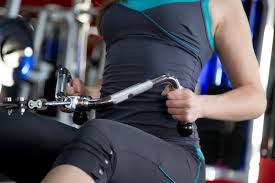
ABS Pump Replacement Cost – Everything You Need to Know Before Replacing Your ABS Pump
If your vehicle’s ABS (Anti-lock Braking System) light has come on or you’ve noticed unusual braking behavior, you might be facing a potential ABS pump replacement. This crucial component keeps your braking system safe and responsive, especially during emergency stops. However, replacing it can be costly, and understanding the ABS pump replacement cost can help you plan your repair expenses more effectively.
In this comprehensive guide, we’ll cover everything you need to know about the ABS pump replacement cost, including symptoms of a bad pump, factors that affect pricing, labor charges, and how you might reduce the total cost.
What is an ABS Pump and Why is It Important?
The ABS pump, also known as the ABS control module, is part of your car’s anti-lock braking system. It helps prevent your wheels from locking up when you brake suddenly, ensuring you maintain steering control and stability.
When you press the brake pedal, the ABS pump modulates brake pressure to prevent skidding. Without it, you could lose control in slippery conditions or during emergency stops. That’s why maintaining a functional ABS pump is vital for both safety and performance.
Common Signs That Your ABS Pump Needs Replacement
Before discussing the ABS pump replacement cost, it’s important to identify when it’s actually necessary. Here are some common symptoms that indicate a failing ABS pump or control module:
- ABS Warning Light On:
The most obvious sign is the ABS light illuminating on your dashboard. This warning light indicates a problem with your braking system. - Unresponsive Brake Pedal:
If your brake pedal feels hard to press or doesn’t respond properly, it could mean the ABS pump isn’t regulating pressure correctly. - Unusual Brake Noise:
Grinding, buzzing, or clicking sounds when braking can signal ABS pump or module malfunction. - Increased Stopping Distance:
If your car takes longer to stop than usual, your ABS may not be functioning effectively. - Brakes Locking Up:
One of the most serious signs is when your brakes start locking under heavy braking. This shows that the ABS system is no longer preventing wheel lock-up.
If you notice any of these symptoms, it’s essential to have your vehicle inspected by a qualified mechanic. Continuing to drive with a damaged ABS pump can compromise your safety.
Average ABS Pump Replacement Cost
The average ABS pump replacement cost can vary widely depending on your vehicle make, model, and location. On average, you can expect to pay between $900 and $2,000 for parts and labor combined.
Here’s a general breakdown:
| Type of Vehicle | Estimated Cost (Parts + Labor) |
|---|---|
| Economy Cars | $700 – $1,200 |
| Mid-Range Vehicles | $1,000 – $1,600 |
| Luxury Cars | $1,500 – $2,500 |
| Trucks/SUVs | $1,200 – $2,000 |
Keep in mind that these prices can fluctuate based on several factors, including whether you choose an OEM or aftermarket part, the complexity of your ABS system, and local labor rates.
Cost Breakdown: Parts vs. Labor
- Parts Cost:
The ABS pump module itself is the most expensive component. A new OEM unit can range from $500 to $1,500 depending on the manufacturer. Aftermarket parts tend to be cheaper, typically $300 to $800, but may not always match OEM reliability or fit perfectly. - Labor Cost:
Labor charges vary by region and shop. Typically, mechanics charge between $100 and $200 per hour, and the replacement takes about 3–6 hours. That adds another $300 to $1,200 in labor costs.
Factors That Affect ABS Pump Replacement Cost
Several variables influence how much you’ll pay to replace an ABS pump:
- Vehicle Make and Model:
Luxury brands like BMW, Mercedes-Benz, and Audi have more complex ABS systems, which increase costs. On the other hand, vehicles like Toyota or Ford tend to have lower replacement expenses. - OEM vs. Aftermarket Parts:
OEM (Original Equipment Manufacturer) parts are built by the car’s original manufacturer and offer guaranteed fit and performance but come at a premium price. Aftermarket parts are cheaper but can vary in quality. - Location and Labor Rates:
Labor costs are higher in big cities compared to small towns. Additionally, dealership labor rates tend to be more expensive than independent repair shops. - Diagnostic Fees:
Before replacing an ABS pump, mechanics perform diagnostic tests to confirm the issue. Diagnostic costs can range from $80 to $150. - Extent of Damage:
Sometimes, only the ABS module (the electronic part) needs replacement, not the entire pump assembly. Replacing just the module can reduce costs significantly.
Can You Repair Instead of Replace the ABS Pump?
In some cases, repairing the ABS pump or module may be possible and cheaper than a full replacement. Repair services can cost between $250 and $600, depending on the extent of the damage.
However, not all ABS issues can be fixed through repair. If the hydraulic unit or internal electronics are severely damaged, a full replacement is necessary. Always have your mechanic perform a thorough diagnosis before deciding.
How to Save Money on ABS Pump Replacement
While replacing an ABS pump can be costly, here are some effective ways to reduce your expenses:
- Compare Quotes:
Always get multiple quotes from different repair shops or dealerships. Prices can vary significantly for the same job. - Consider Used or Refurbished Parts:
Buying a used or refurbished ABS pump can save you hundreds of dollars. Just ensure it’s compatible with your vehicle and tested for quality. - Independent Mechanics:
Independent shops often offer lower labor rates than dealerships while providing comparable service quality. - DIY Installation (Advanced Users):
If you have mechanical skills and tools, replacing the ABS pump yourself can save labor costs. However, this should only be done if you’re confident in your abilities, as improper installation can affect safety.
How Long Does It Take to Replace an ABS Pump?
Replacing an ABS pump usually takes between 3 to 6 hours, depending on the vehicle and mechanic’s experience. Some models require more disassembly, which increases labor time.
After installation, the system must be properly bled to remove air from the brake lines and calibrated using specialized diagnostic tools.
Is It Safe to Drive with a Bad ABS Pump?
While your car may still brake with a bad ABS pump, you’ll lose the anti-lock feature that prevents wheel lock-up during hard braking. This increases your risk of skidding and losing control, especially on wet or slippery roads.
If your ABS light comes on, schedule a diagnostic check as soon as possible. Continuing to drive for an extended period without a functioning ABS can lead to dangerous situations and further damage to your braking system.
How to Prevent Future ABS Pump Failures
You can extend the lifespan of your ABS system by following a few maintenance tips:
- Flush Brake Fluid Regularly:
Old or contaminated brake fluid can corrode ABS components. Replace it every 2 years or as recommended by your manufacturer. - Avoid Hard Braking When Unnecessary:
Frequent sudden stops can strain your ABS pump over time. - Inspect Wheel Sensors:
Faulty wheel speed sensors can send incorrect data to the ABS module, causing malfunction or pump failure. - Keep Electrical Connections Clean:
Corrosion or loose wiring can trigger ABS errors. Regularly inspect and clean electrical connections.
Conclusion: Understanding the True ABS Pump Replacement Cost
The ABS pump replacement cost may seem high, but it’s an investment in your vehicle’s safety. On average, you can expect to spend between $900 and $2,000, depending on your car model and labor rates.
Ignoring ABS issues can lead to more severe braking problems and higher costs down the line. Therefore, as soon as you notice the ABS warning light or any braking irregularities, have your vehicle checked immediately.



















